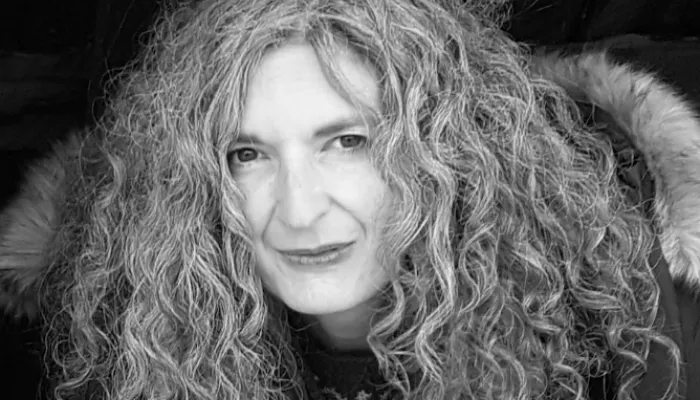Stuart Ross
Biography
Stuart Ross is a writer, editor, writing teacher, and small press publisher living in Cobourg, Ontario. Stuart has taught workshops in elementary schools and high schools across the country, and has been Writer-in-Residence at Queen’s University and the University of Ottawa, and was faculty at the Banff Centre for Arts and Creativity in summer 2023. Visiting schools and working with students of all ages is his favourite part of his writing practice. He is winner of the 2023 Trillium Book Award, given to a single outstanding book published in Ontario, for his memoir The Book of Grief and Hamburgers (ECW Press, 2022), as well as the 2019 Harbourfront Festival Prize (previous recipients include Alice Munro, Dionne Brand, Michael Ondaatje, and Margaret Atwood), the Canadian Jewish Literary Award for Poetry, and the ReLit Prize for Short Fiction. Stuart is the author of 23 books of poetry, fiction, memoir, and essays; his recent poetry collections include The Sky Is a Sky in the Sky (Coach House Books, 2024), Motel of the Opposable Thumbs (Anvil Press, 2019), A Sparrow Came Down Resplendent (Wolsak and Wynn, 2016), and A Hamburger in a Gallery (DC Books, 2015), as well as the novel-in-prose-poems Pockets (ECW Press, 2017). Stuart is at work writing nearly a dozen different poetry, non-fiction, and fiction manuscripts. But he would love take a bit of time off writing to visit your classroom!
Micro-interview
Yes, I read a ton of poetry in high school. In fact, I started reading poetry when I was seven or eight. I was really inspired by an untitled E. E. Cummings poem that began “i sing of Olaf glad and big / whose warmest heart recoiled at war.” I loved the strong anti-war sentiments in it, but also its incredible experimentation with form and syntax. Emily Dickinson’s “I heard a Fly buzz – when I died” also excited me. But one of my greatest discoveries as a teenager was the works of the great Canadian poet David McFadden, who wrote very funny poems about very serious topics, and in a really conversational style. That was transformative for me. (And I went on to be editor of Dave's final six books!)
I probably wrote my first poems when I was eight or nine years old. Here’s one I wrote when I was eleven; it was the first one I ever submitted for potential publication; it was rejected: “If you double a bubble / you’ll have two bubbles / but this information isn't worth / a pile of rubble.” I thought of myself as a poet from a very young age, but it wasn't until I was in my thirties that I would actually answer, “I am a poet,” if someone asked me what I did.
A poet’s “job” is to create poems, for whatever reason the poet chooses. Some simply want to play with words, some want to express themselves, some want to do something lofty, some want to protest, some want to create a thing of beauty or a thing of ugliness. These are all viable jobs. For me, I revel in exploring the possibilities of language and form!
I wrote “I Have Something to Tell You” a long time ago. I had to reread it to see if I could discover its origins, but also to remind myself which poem it is! I’m so glad you chose that one for the anthology. My poems usually just spring from a first line that pops into my head, and I rarely know where it’s going to go until I start writing. A lot of my early poems mention shaving (also hamburgers and penguins). I was always fascinated by my dad’s shaving ritual: the hot water, the shaving cream, the slow and scratchy drag of the razor. And then, afterwards: the tiny pieces of toilet paper that he adhered to the shaving cuts, and the red dot of blood that would soak through. When I wrote that poem, I probably thought it was funny to begin with the pompous declaration of “I have come to talk to you about…” and then finish it with someone as trivial as “shaving cuts.” From that point, my unconscious likely took over, and I followed the poem where it took me.
I am really terrible at memorization. I would likely search for the shortest poem I could find. And then I probably would get it wrong.


